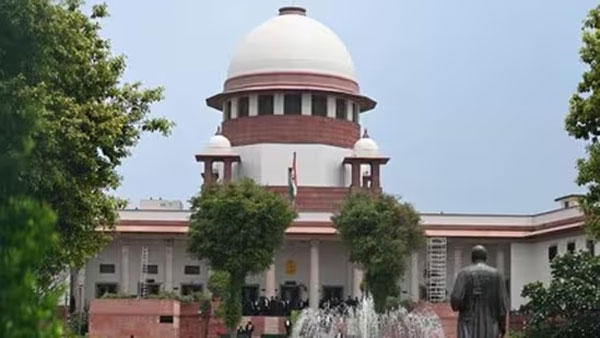Daijiworld Media Network - New Delhi
New Delhi, Jul 24: In a significant development, the Supreme Court on Thursday stayed the Bombay High Court’s acquittal of all 12 accused in the 2006 Mumbai train blasts case, but clarified that they need not return to prison at this stage.
The apex court, while taking up an appeal by the Maharashtra government, also barred the High Court verdict from being cited as a legal precedent in any ongoing or future trials.
A bench comprising Justices M.M. Sundresh and N. Kotiswar Singh issued notices to all 12 acquitted individuals and sought their replies on the state's plea challenging their acquittal.

“We have been informed that all the respondents have been released and there is no question of bringing them back to the prison. However, taking note of the submission made by the solicitor general on the question of law, we are inclined to hold that the impugned judgment shall not be treated as a precedent,” the bench noted.
Maharashtra Govt Raises Alarm Over Legal Impact
Solicitor General Tushar Mehta, representing the Maharashtra government, urged the court to put the brakes on the acquittal order, arguing that the ruling could have far-reaching implications on cases under the Maharashtra Control of Organised Crime Act (MCOCA).
During the hearing, Justice Sundresh asked whether all 12 accused had been released, noting that some of them were believed to be Pakistani nationals. The state clarified that those foreign nationals were never arrested, and the 12 individuals released were those who had been in custody.
Recap: The 2006 Mumbai Blasts Case
On July 11, 2006, a series of seven powerful blasts ripped through Mumbai’s suburban trains during the evening rush hour, killing over 180 people and injuring hundreds more. The explosions occurred across various locations on the Western Line, plunging the city into chaos and grief.
In the years that followed, a special court convicted 12 individuals, sentencing five to death and seven to life imprisonment. One of the death row convicts died in custody in 2021.
However, on July 21, 2024, a special Bombay High Court bench comprising Justices Anil Kilor and Shyam Chandak overturned all convictions, stating that the prosecution had failed to prove its case beyond reasonable doubt and that it was “hard to believe the accused committed the crime.”
What Happens Next?
With the Supreme Court now seizing the matter, the acquitted individuals won’t be re-arrested for now, but the state’s appeal keeps the door open for re-examination of the High Court’s ruling.
The case, one of the most significant terror trials in India's history, continues to spark legal, political, and public debate, especially as the judiciary weighs the balance between justice and due process in terror-related prosecutions.